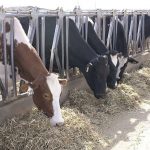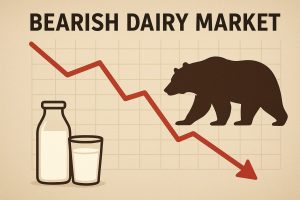
Argentina will not break commercial relations with China; it’s important to clarify this due to statements made during the electoral campaign that led to misinterpretations. However, even if the commercial relationship remains intact, the demand for milk from the Asian giant would decrease as China is actively working on policies to increase primary production.
What about consumption?
Dairy products were not part of China’s population diet before 1982, but currently, according to calculations by the Sino-Dutch Dairy Development Center, per capita consumption is expected to grow from 15% to 20% annually between 2020 and 2025, reaching an average of 40 kg.
To put these numbers into perspective, 20 years ago, they consumed only 6 kg of dairy per person per year.
Big sellers, big buyers
China is the world’s largest exporter of goods and the second-largest importer. With 22% of the world’s population and only 14% of cultivable land, it’s safe to say that they will continue to be significant buyers in the global market.
According to information from eDairyNews/DairyCorp, China is also the largest importer of dairy products, accounting for 25% of the world’s offerings, with plans to achieve self-sufficiency.
How China affects the Argentine dairy market
Of the 100% of dairy products that China buys from the world, Argentina supplies only 0.1%: 19,790 tons. Ceasing to sell to them would mean a loss of $75.2 million, based on 2022 sales.
In January 2023, dairy sales to China represented 4.8% of the total dollar value of exports. Brazil, Algeria, and Chile were the main destinations.
It’s not all smooth growth for the Chinese
In the last two years, despite maintaining their top position as the driving force behind international dairy demand, China significantly reduced its purchases. The rise in local production and significant purchases in 2021 that led to high stocks are among the reasons.
Logistical difficulties due to city closures from COVID outbreaks, the collateral effects of the war in Ukraine, and global inflation impacting demand have also played significant roles.
China influences the international dairy market
When Chinese demand is high, global prices rise, and when it decreases, prices fall. As Argentina is a major exporter, any movement in international prices affects the income of local producers.
























